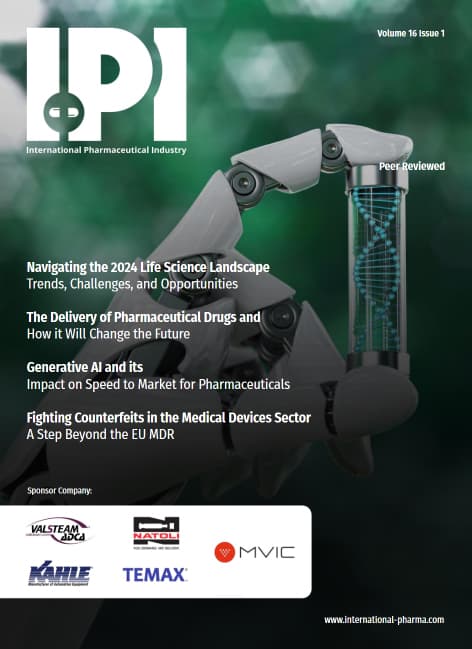The UK Government’s narrow defeat (Wednesday 13th November) on amendment seven of the European Union withdrawal bill, demanding that Parliament have a binding vote on the final Brexit deal, has fuelled a debate on whether the UK could now be heading for a softer Brexit and what impact this will have on leading industries like UK pharma.
A recent webinar by GlobalData, a leading data and analytics company, brought together industry leaders* to review the reputational, economic and R&D implications of Brexit for the UK pharma sector.
A recent webinar by GlobalData, a leading data and analytics company, brought together industry leaders* to review the reputational, economic and R&D implications of Brexit for the UK pharma sector.
Reputational
From a reputational point of view, the UK’s status as a first-tier drugs market could come to an end and its regulator, the Medicines and Healthcare products Regulatory Agency (MHRA), may no longer serve as a model to other agencies.
From a reputational point of view, the UK’s status as a first-tier drugs market could come to an end and its regulator, the Medicines and Healthcare products Regulatory Agency (MHRA), may no longer serve as a model to other agencies.
Jennifer C. Smith-Parker, Healthcare Editor EMEA at GlobalData, commented, ‘‘The UK has already lost The European Medicines Agency (EMA) which will relocate from London to Amsterdam in the wake of Brexit. However, the National Institute of Health and Care Excellence (NICE), the UK’s drug pricing watchdog, will likely continue to serve as an international model due to the organisation’s expertise in drug pricing and reimbursement.’’
Economic
Economically the UK will remain an important market but depending on the outcome of negotiations, specifically in regards to regulation of drugs, the UK may experience delays in its ability to launch new products. The Medicines and Healthcare products Regulatory Agency (MHRA), or a new agency that may form post-Brexit, may have to take on marketing authorization, orphan drug approvals and small and medium enterprise (SME) designations. Sharing pharmacovigilance data is a key concern for UK pharma R&D in the post-Brexit environment.
R&D
Despite Merck opening a USD $1.3bn research hub in London recently, much of the country’s life sciences R&D work could be driven to the continent, as exiting the single market and potential immigration restrictions will make the UK a less attractive place for drug firms. Any perception that the UK has become less hospitable to migrant workers and overseas researchers due to Brexit, will make it more difficult to recruit and retain R&D talent, impacting pharma operations.
Smith-Parker agreed with Steve Bradshaw, Managing Director at Valid Insight, who added, ‘‘Ultimately, what changes will take place as a result of Brexit remains the great unknown but change brings opportunities to spearhead positive reform and new ways to attract investment. The opportunity to strengthen relationships between the National Health Service, industry and government should also be explored to further the UK’s role as a centre for medical research and build the infrastructure to accelerate bringing better medicines to patients who need them.’’
* webinar contributors were: Jennifer C. Smith-Parker, Healthcare Editor EMEA at GlobalData, Alan Boyd, CEO, UK-based healthcare consultancy Boyd Consultants and Steven Bradshaw, Managing Director, UK market access consultancy Valid Insight
Economic
Economically the UK will remain an important market but depending on the outcome of negotiations, specifically in regards to regulation of drugs, the UK may experience delays in its ability to launch new products. The Medicines and Healthcare products Regulatory Agency (MHRA), or a new agency that may form post-Brexit, may have to take on marketing authorization, orphan drug approvals and small and medium enterprise (SME) designations. Sharing pharmacovigilance data is a key concern for UK pharma R&D in the post-Brexit environment.
R&D
Despite Merck opening a USD $1.3bn research hub in London recently, much of the country’s life sciences R&D work could be driven to the continent, as exiting the single market and potential immigration restrictions will make the UK a less attractive place for drug firms. Any perception that the UK has become less hospitable to migrant workers and overseas researchers due to Brexit, will make it more difficult to recruit and retain R&D talent, impacting pharma operations.
Smith-Parker agreed with Steve Bradshaw, Managing Director at Valid Insight, who added, ‘‘Ultimately, what changes will take place as a result of Brexit remains the great unknown but change brings opportunities to spearhead positive reform and new ways to attract investment. The opportunity to strengthen relationships between the National Health Service, industry and government should also be explored to further the UK’s role as a centre for medical research and build the infrastructure to accelerate bringing better medicines to patients who need them.’’
* webinar contributors were: Jennifer C. Smith-Parker, Healthcare Editor EMEA at GlobalData, Alan Boyd, CEO, UK-based healthcare consultancy Boyd Consultants and Steven Bradshaw, Managing Director, UK market access consultancy Valid Insight
























